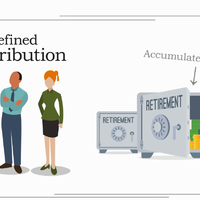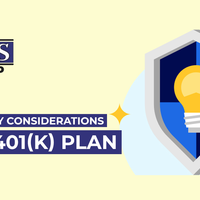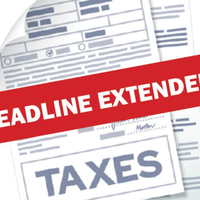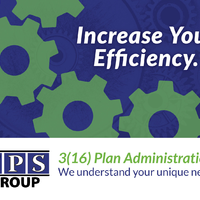- TPS Group
- Articles
The Pros and Cons of 401(k) Loans and Hardship Withdrawals
Posted on Jan 9, 2023
Employers may allow employees to take loans or hardship withdrawals from their 401(k) accounts, but they come with risks and potential tax consequences. Hardship withdrawals can reduce an employee's account balance, and loans may incur taxes and penalties if not repaid. Employers should carefully weigh the benefits and risks before offering these options to employees.
Continue readingIs a Roth 401(k) Right for You?
Posted on Dec 6, 2022
The pre-tax advantages of a 401(k) plan make it a very effective way for employees to save for retirement and lower their tax burden. Since taxes on a 401(k) are deferred until funds are actually withdrawn, the premise is that in retirement, the individual will be in a lower tax bracket than while employed.
Continue readingIs Your Retirement Plan Still Aligned with Your Business Needs?
Posted on Nov 21, 2022
With 2023 right on the horizon, now is a good time for employers to review whether their retirement plans are still in alignment with their business needs and goals.
Continue readingUnderstanding ERISA Fidelity Bonds and Fiduciary Liability Insurance
Posted on Oct 13, 2022
Fidelity bonds are an ERISA requirement for people who manage plan funds and other property. These bonds protect the plan from losses due to fraud or dishonesty, which may include theft, embezzlement, forgery, misappropriation, and other acts.
Continue readingDefined Benefit Plans are Alive and Well
Posted on Sep 26, 2022
You’ve likely heard about a decline in the number of Defined Benefit plans. But the reality is a DB plan is still a great tax and retirement savings vehicle that can produce superior retirement outcomes for the right client. Are you one?
Continue readingFiduciary Considerations in a 401(k) Plan
Posted on Sep 12, 2022
It’s important for employers to understand and meet their 401(k) fiduciary responsibilities and comply with ERISA rules to ensure the proper management of their workers’ and retirees’ plan assets. A 401(k) plan must have at least one named fiduciary, either a person or entity, that has control over the plan’s operation.
Continue readingIRS Extends Deadlines for Retirement Plan Amendments
Posted on Aug 24, 2022
This month, the IRS extended the deadlines to adopt certain retirement plan amendments for most plans. Notice 2022-33 provides plan sponsors with an extension until December 31, 2025 to adopt formal plan amendments for the CARES Act and the SECURE Act of 2019.
Continue readingHelp Employees Make Real Progress with Automatic Enrollment and Automatic Escalation in your 401(k) Plans
Posted on Aug 19, 2022
An important way you can help your employees make real progress for themselves is to offer auto-enrollment and auto-escalation features in your 401(k) plan. Both can positively influence retirement outcomes. But even if your plan includes these features, there may be reason to review them to make sure they’re optimized.
Continue readingDoes Plan Administration Take Up Too Much of Your Time and Resources?
Posted on Aug 16, 2022
ERISA's stringent requirements for Plan Sponsors have made the administration of retirement plans even more complex and subject to legal challenges. Now more than ever, outsourcing these responsibilities to a qualified 3(16) fiduciary makes sound business sense.
Continue reading“We’ve Been Hacked” – Cybersecurity and Your Employees
Posted on Jul 20, 2022
All companies are vulnerable to hacking attempts, and it’s never been more important to assess and mitigate your risks. Staying up-to-date on security software, spam filters, firewalls, data encryption, data back-up, training employees to be vigilant, monitoring use of computer systems and equipment, and developing clear cybersecurity policies are essential steps to protect your organization and its employees.
Continue reading










